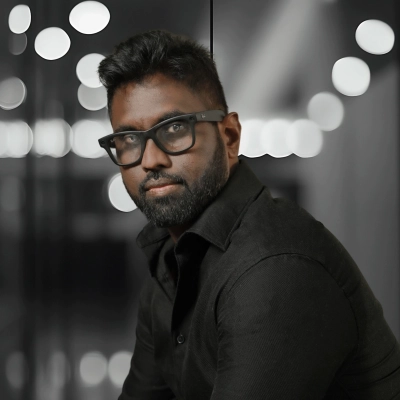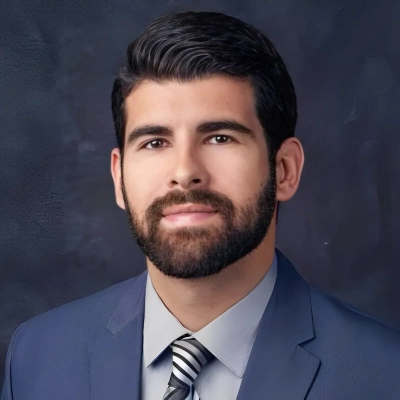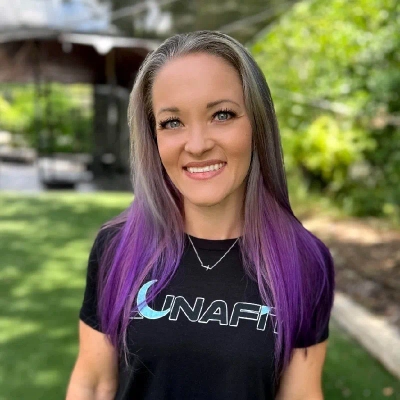Founders Share: Avoiding Burnout While Maintaining Ambition
Ambitious founders often face the challenge of maintaining their drive while avoiding burnout. This article presents valuable insights from experienced entrepreneurs on striking the right balance. Learn practical strategies to sustain your ambition and achieve long-term success without sacrificing your well-being.
- Focus on Necessary Conditions for Success
- Prioritize Stamina Over Speed
- Embrace Variety to Fuel Ambition
- Celebrate Small Wins and Adapt
- Build Systems for Sustainable Execution
- Play the Long Game in Business
- Measure Ambition by Outcome, Not Effort
- Perfect Your System, Not Your Destination
- Embrace Progress Over Perfection
- Trade Volume for Energy and Meaning
- Protect Time for Deep, Meaningful Work
- Treat Energy as a Valuable Business Asset
- Prioritize Tasks with Immediate Impact
- Develop a Founder Switch for Mental Breaks
- Stay Connected to Your Why
- Set Boundaries and Question Productivity Beliefs
- Treat Energy Like Capital for Sustainable Growth
- Embrace Consistent Action and Patience
- Create Renewal Cycles with Process-Oriented Goals
Focus on Necessary Conditions for Success
When facing burnout risk, one concept from engineering school guides me: necessary conditions.
Whenever stress creeps in, I pause and ask myself: What are the necessary conditions that truly define success? That question, paired with a clear, focused answer, helps me separate what must happen from what’s just noise.
For example, in my business, I focus on two core necessary conditions: financial viability and lifestyle alignment. Any work that doesn’t meet both of these conditions gets outsourced, rethought, or eliminated.
Simply put, the goal shifts from, “How do I do XYZ?” to, “What must happen to meet the necessary conditions?” This shift protects my energy, opens me to new possibilities, and helps prevent burnout.
If there’s one mindset shift I’d recommend to fellow founders, it’s this: Take the time to clearly define the necessary conditions for success in your goals, then keep those conditions front and center. Direct your energy only toward what meets all of those conditions. If an option doesn’t, let it go. It’s simply not worth your time or energy. That focused clarity helps you sustain your well-being without sacrificing ambition.
This is exactly the kind of mindset work I guide my clients through, helping them clarify their goals by defining necessary and sufficient conditions before uncovering and shifting the mindset constraints that hold them back. This approach empowers them to design their goals around what truly supports their happiness, and make steady, meaningful progress toward those goals.
 Dr. Ada Barlatt
Dr. Ada Barlatt
Mindset Engineer | Founder, Happy Mindset Inc.
Prioritize Stamina Over Speed
Early on, I equated ambition with doing more: more projects, more hours, more hustle. The problem? That equation always ends in burnout.
The shift for me was realizing that growth isn’t about speed; it’s about stamina. Instead of chasing every opportunity, I focused on fewer, higher-value ones that aligned with my vision. That way, the work fueled me instead of exhausting me.
My advice to other founders: don’t measure ambition by intensity; measure it by longevity. Your biggest edge is staying in the game while others burn out.
 Bhavik Sarkhedi
Bhavik Sarkhedi
Founder & CEO, Ohh My Brand
Embrace Variety to Fuel Ambition
As a software engineer, I was taught to dive deep into issues, even to the extent that I’d lose sight of balance. While that concentrated focus worked well in the technical space, when I added entrepreneurship, real estate, and community projects on top, it became overwhelming. I realized that the only way to preserve my ambition was to diversify my attention in a healthy manner.
Now, I deliberately plan my days in cycles of variety. Mornings are reserved for technical or program management tasks when my brain is most alert. Then I shift, dedicating time to coaching conversations, working on my book, or running my bakery business. By cycling through various passions rather than focusing intensely on a single one, I protect myself against burnout and energize myself through the transitions.
The mindset shift I’d recommend is to embrace variety, not fear it. For founders, variety isn’t a distraction. It’s fuel. It keeps you sharp, creative, and driven without burning out.
Celebrate Small Wins and Adapt
We’ve learned that in order to prevent burnout while keeping our ambition intact, it’s important to stay flexible with our goals. We’ve adjusted our expectations by focusing on incremental progress and allowing room for rest and reflection. The key is not to be too fixed on timelines and to celebrate small wins along the way. One mindset change I’d recommend to other founders is to view challenges and setbacks as opportunities for growth, rather than obstacles. Embrace adaptability and keep the long-term vision alive, but allow yourself the flexibility to adjust when needed.
 Manoj Kumar
Manoj Kumar
Founder & CEO, HypeTribe
Build Systems for Sustainable Execution
I stopped treating burnout like a badge of honor. I used to think pushing harder was the answer, but eventually realized I was optimizing for exhaustion, not outcomes. The shift came when I redefined success around sustainable execution, not just speed anymore. Now I build systems that protect my energy and keep communication clear and responsive. My advice to other founders is to not confuse overwork with progress. The real flex is building something that lasts and still wanting to show up tomorrow.
 Alex Smereczniak
Alex Smereczniak
Co-Founder & CEO, Franzy
Play the Long Game in Business
In chess, you learn that not every piece needs to be in play at once. Sometimes the smartest move is to pause, protect, and reposition. Early in my career, I treated every goal like an all-or-nothing checkmate — constantly pushing for the big win. But if every move is an attack, you lose energy and perspective fast.
Now, I approach my goals like the phases of a chess game: the opening to build momentum, the middle to strengthen my position, and the endgame to make the decisive move. That pacing keeps me ambitious without burning out.
The biggest mindset shift I’d share with other founders? Play the long game. Your vision isn’t built in one turn — adapt your strategy and remember that patience can be just as powerful as bold moves.
 Ashley Lynn Priore
Ashley Lynn Priore
Founder & CEO, Queenside Ventures
Measure Ambition by Outcome, Not Effort
The shift that worked best for me was detaching identity from output. I used to associate success with being first in and last out, which only led to strained judgment and reactive decisions. I would argue founders need to stop seeing constant motion as momentum. I started measuring ambition by outcome, not effort, like cutting $18,000 in recurring bloat in a single pricing restructure that took one focused afternoon. That recalibration can give more space for strategic planning and less guilt around pausing. In fact, my most valuable ideas came in silence, not grind mode.
 Guillermo Triana
Guillermo Triana
Founder and CEO, PEO-Marketplace.com
Perfect Your System, Not Your Destination
I never adjusted my ambition down. I adjusted my focus. The common advice is to lower expectations to prevent burnout, but that just kills the drive that makes a founder successful. The real trick is to stop obsessing over the destination and start obsessing over the engine that gets you there. Burnout isn’t caused by big goals. It’s caused by friction: the grinding, repetitive, low-leverage work that drains your energy.
My goal is to build a multi-billion dollar company, but my daily focus is on perfecting our system. That’s our engine. Every improvement we make removes friction for our agents, eliminating the cold calls and rejection that lead to burnout. By focusing on building a better, more efficient engine, the massive goal feels less like a monumental climb and more like the natural output of a well-oiled machine. That’s how you keep ambition high and burnout low.
 Rob Graham
Rob Graham
Founder, MeetingsTech
Embrace Progress Over Perfection
I learned to adjust my expectations by focusing on consistent progress rather than perfection, which significantly reduced my stress levels while keeping my ambition intact. Instead of waiting for the perfect moment or creating flawless products, I found that moving forward with what I had available was the key to sustainable growth. This mindset shift allowed me to celebrate small wins along the way rather than feeling constantly dissatisfied with not reaching an idealized end state.
For other founders, I would recommend embracing the concept that early versions of your product or service don’t need to be perfect — they just need to be real enough to begin the journey. Setting realistic milestones and acknowledging that business building is a marathon, not a sprint, creates space for both ambition and well-being to coexist.
 Sahil Gandhi
Sahil Gandhi
CEO & Co-Founder, Blushush Agency
Trade Volume for Energy and Meaning
If I’m being honest, burnout caught up with me when I started confusing urgency with importance. Everything felt like it needed to be done yesterday. I wasn’t sleeping, and I began to resent the work I used to love.
The shift that saved me was trading volume for energy. Instead of asking, “What else can I do today?” I began asking, “What can I do today that won’t drain me tomorrow?” That one question changed how I set goals, lead my team, and measure progress.
Some weeks I work fewer hours than before, but I’m sharper, calmer, and more present. And ironically, we started growing even faster. We now serve students in over 30 countries, and much of that growth came after I stopped wearing exhaustion as a badge of honor. I let go of the old metric of, “How much did I do?” and replaced it with, “Did today move us forward in a meaningful way?”
I also dropped the habit of late-night strategy scrambles. The best ideas usually come on a quiet walk, no phone, just space to think.
If there’s one mindset shift I’d offer to other founders: you’re not a machine. You can chase big goals and still be kind to yourself in the process. Ambition isn’t about burnout. It’s about staying in the game long enough to build something that matters.
 Vasilii Kiselev
Vasilii Kiselev
CEO & Co-Founder, Legacy Online School
Protect Time for Deep, Meaningful Work
I realized that constant busyness wasn’t the same as true productivity, which was leading our team toward burnout while not necessarily advancing our goals. To address this, I implemented a time-blocking strategy where team members get 2-3 hours of uninterrupted work time daily, with notifications off and meetings rescheduled. We also start each week by identifying one high-priority task per person that will truly move the needle for our business. This approach has significantly improved both our efficiency and team morale. The mindset shift I recommend to other founders is to stop equating being busy with being productive — focus instead on creating systems that protect your team’s ability to do deep, meaningful work on what truly matters.
 George Fironov
George Fironov
Co-Founder & CEO, Talmatic
Treat Energy as a Valuable Business Asset
When I first started my businesses, I thought success meant being perfect at everything: every email flawless, every project done yesterday, every detail under my control. I told myself I was raising the bar, but really, I was driving myself straight into burnout and losing the clarity that made me a strong leader in the first place.
The turning point came when I realized perfection wasn’t progress, and protecting my energy wasn’t a luxury; it was a business strategy. Now, I treat my time and focus like my most valuable assets, going all-in on the highest-impact priorities and letting “good enough” be good enough for the rest.
I still set big goals, but I’ve learned ambition doesn’t have to mean self-destruction. My advice to other founders: stop wearing exhaustion and perfectionism like badges of honor. Build a pace you can sustain so you’re still winning 10 years from now.
 Ariana Hakman
Ariana Hakman
Founder and Chief Operating Officer, LunaFit
Prioritize Tasks with Immediate Impact
My co-founder and I came from large organizations; mine had over 150 people, and his was closer to 10,000. Because of this, we were accustomed to the bureaucracy present in those firms. We were also used to departments, meetings, handbooks, managers, hierarchy, and titles… you get my drift.
I remember when we hired our first employee; we thought we had to create an employee handbook, code of conduct, and all of those formal documents that come in an onboarding packet before doing so. We spent days creating a 100+ page employee handbook that our first employee signed within 60 seconds. That’s not to say handbooks aren’t important, but sometimes it’s crucial to take a step back and ask what has to be done now and what can be addressed later.
We were exhausted by our mad dash to finish the details before we hired our first employee — and when you’re founding a small business, being exhausted is not something you can afford for long! We adjusted our growth goals to focus on the actual hiring process — and we continue to build as we go.
So, I recommend shifting your mindset to prioritize tasks that need immediate attention. It’ll help keep you energetic, productive, and focused on your big-picture objectives.
 Maurice Harary
Maurice Harary
CEO & Co-Founder, The Bid Lab
Develop a Founder Switch for Mental Breaks
Preventing burnout while maintaining ambition requires developing what I call a “founder switch” — the ability to mentally disconnect from business problems when needed. I’ve learned that deliberately stepping away from work allows me to rest and return with renewed resilience, which is absolutely crucial for long-term success in the startup world. This mental separation doesn’t diminish ambition; rather, it creates the necessary space for creativity and strategic thinking to flourish when I return to work.
For other founders, I recommend shifting your mindset from viewing rest as unproductive to recognizing it as a strategic investment in your cognitive capacity and decision-making abilities. Building this mental discipline takes practice, but it has been one of the most valuable skills I’ve developed throughout my entrepreneurial journey.
 Andrei Blaj
Andrei Blaj
Co-Founder, Medicai
Stay Connected to Your Why
Early in my journey, I had to do things that didn’t scale — the hard, boots-on-the-ground stuff. As you grow, it’s easy to get hooked on processes and behaviors that scale, and in the process, lose touch with the gritty work that built the foundation. I realized that staying willing to do the little things that don’t scale is what keeps you sharp and connected to your “why.” That’s where all the learning happens, and it’s often the difference between a founder who coasts and one who stays hungry. Stay in love with the process, not the outcomes.
 Jimmy Funkhouser
Jimmy Funkhouser
Founder & Owner, FERAL
Set Boundaries and Question Productivity Beliefs
Preventing burnout without losing ambition is a tricky balance, but it starts with setting boundaries. Not just physical ones, but mental ones. Before I understood this, I would work through weekends and start Mondays already depleted. My drive to get ahead came at a cost, until I simply couldn’t push anymore.
Now, I protect my weekends as time for enjoyment and recovery, whether that’s going out with friends, going to a yoga class, doing household chores, or just resting with a good book or movie. I realize those breaks aren’t wasted time; they’re actually what give me the clarity and energy to show up stronger at work.
The mindset shift I’d recommend to other founders is to stop tying your self-worth exclusively to productivity, and start questioning where that belief comes from. Once you detach your value from constant output, you’ll find a healthier, more sustainable drive.
 Maria C. Rincon
Maria C. Rincon
Public Speaking Coach & Tedx Speaker | Ex-Tv Host & Un Comms Consultant, Public Speaking with Maria
Treat Energy Like Capital for Sustainable Growth
I stopped measuring success solely by speed and started measuring it by sustainability. Instead of chasing every opportunity, I focused on the ones that aligned with my long-term vision and values. The mindset shift I’d recommend is to treat energy like capital. Spend it where the return is worth it.
 Sahil Gandhi
Sahil Gandhi
CEO & Co-Founder, Blushush Agency
Embrace Consistent Action and Patience
I used to want results ASAP!
That impatience drove me to squeeze every hour for productivity, only to end up exhausted and discouraged when results didn’t come fast.
That’s when I discovered the principle of compounding through an unexpected source: the billion-year history of Ice Ages.
It starts when one summer isn’t warm enough to melt all the winter’s snow. That leftover ice makes it easier for new snow to stick the next winter. Over hundreds of years, a seasonal snowpack becomes a continental ice sheet.
I realized I don’t need tremendous force to get tremendous results. I just need consistent action plus patience.
Founding a successful business is like planting an oak tree:
In the first 6 months, you don’t see much growth. But after 10 years, you’ve got a mighty oak.
 Derek Heaven
Derek Heaven
Podcast Virtual Assistant
Create Renewal Cycles with Process-Oriented Goals
The key isn’t to lower your ambitions, but to reframe and restructure your approach to achieving them. It’s about playing a marathon, not a series of sprints that leave you exhausted. Here’s the practical adjustment:
Shift from a single, massive, distant goal to a system of smaller, process-oriented goals with built-in renewal cycles.
Instead of having a goal like, “Become a market leader in 3 years,” which is overwhelming and offers no short-term feedback, you break it down and build in sustainability.
Set Shorter Time Horizons: Move from 3-year goals to 90-day (quarterly) goals. This creates a tangible finish line. You can push hard for 90 days knowing a break or recalibration is coming. The end of a quarter is a natural point to celebrate, rest, and plan the next cycle.
Focus on Input-Based Goals, Not Just Outputs: Output goals are “Hit $100K MRR.” They are vital, but your direct control over them is limited. Input goals are the actions that lead to the output. They are fully within your control.
Instead of: “Close 10 new enterprise customers this quarter.”
Try: “Make 50 high-quality outbound calls per week” and “Run 20 dedicated demos.”
When you hit your input goals, you can feel successful even if the output goal isn’t fully met, because you know you executed the plan. This protects your sense of efficacy and prevents the despair of missing an output goal due to factors outside your control.
Schedule Renewal Before You Need It: Ambition tells you to work 7 days a week. Wisdom tells you that a 6-day workweek leads to diminishing returns by Thursday. Block non-negotiable time for recovery in your calendar first.
Protect your weekends. All of them.
Schedule a 3-day weekend every quarter.
Block an hour for lunch, a walk, or the gym. This isn’t lost time; it’s an investment in the quality of your remaining hours.
Define “Minimum Viable Progress”: What is the absolute smallest amount of progress you can make each day or week that would still feel like you’re moving forward? Some days, just hitting that MVP is enough. It maintains momentum without requiring a Herculean effort, which prevents the “all-or-nothing” thinking that leads to burnout.
 Garrett Lehman
Garrett Lehman
Co-Founder, Gapp Group


